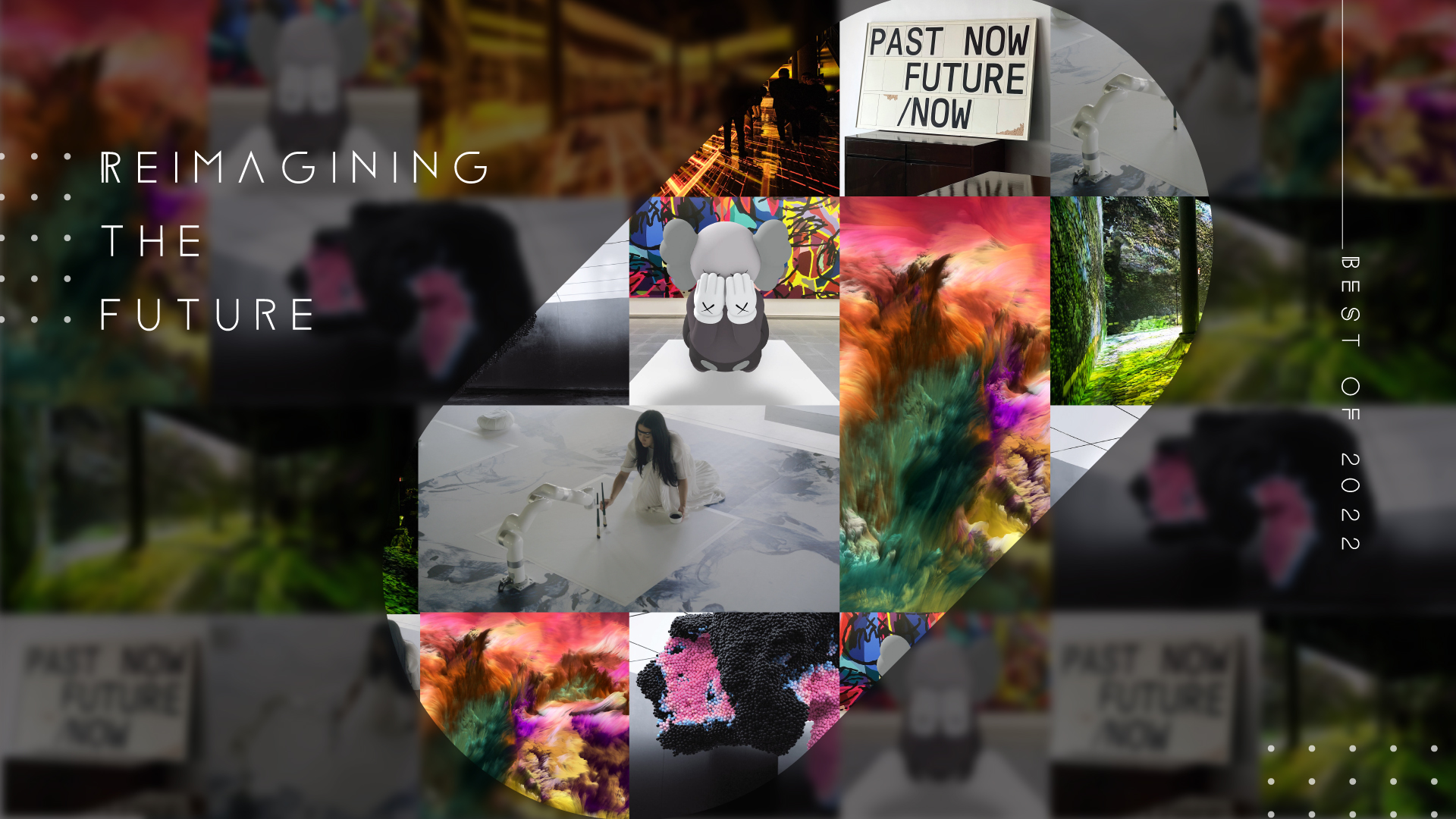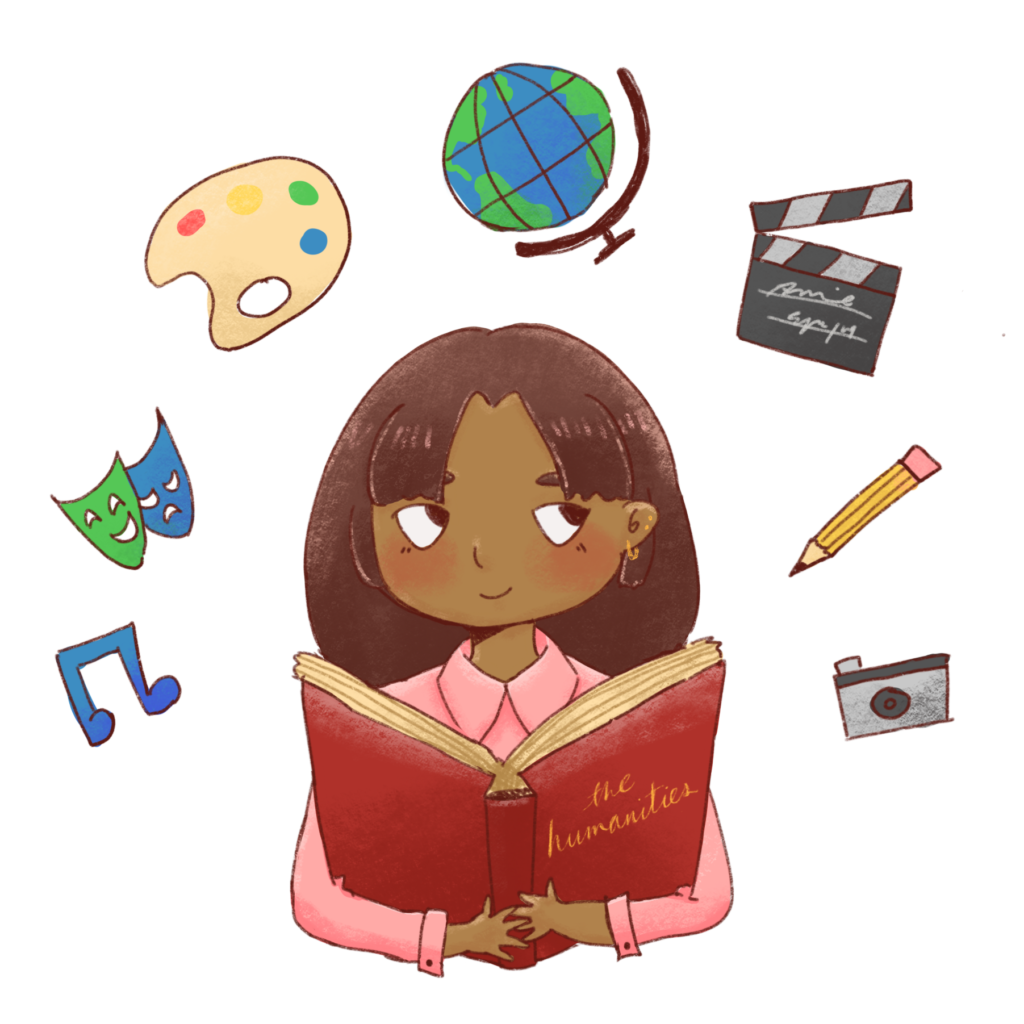Reimagining the future is not merely an exercise in dreaming; it is a call to action that intersects with critical issues like AI and social justice. Renowned Princeton sociologist Ruha Benjamin urges us to challenge dystopian narratives and actively shape a future that reflects human values and equity. As she eloquently discussed in her Tanner Lectures, the prevailing tech-driven futurism often prioritizes the whims of elite technocrats over the welfare of society at large. In this context, Benjamin emphasizes the necessity of integrating diverse perspectives—especially from arts and humanities—to confront the challenges posed by artificial intelligence. By prioritizing creative inquiry, we can forge resilient pathways that envision a collective good, steering our society towards a thoughtful, inclusive future rather than one dictated by profit-driven motives.
Envisioning a transformed tomorrow encompasses much more than mere speculation; it requires a profound shift in our collective mindset and practices. Scholars like Ruha Benjamin advocate for a future where technology serves the broader community, rather than just the privileged few. This perspective underscores the importance of integrating cultural insights and historical knowledge into our discussions around AI and its implications for social equity. We must foster a holistic understanding that transcends purely technological considerations, focusing instead on nurturing empathy and human connection. Therefore, it is crucial to embrace innovative thought and challenge existing paradigms, paving the way for a future that aligns with the aspirations of all members of society.
Envisioning a Just Future Through Art and Technology
Ruha Benjamin emphasizes the pivotal role of arts and humanities in shaping a just future, particularly in the context of artificial intelligence (AI) and social justice. The intersection of creative inquiry and technology offers a platform for marginalized voices, allowing diverse perspectives to be included in the conversation about AI’s impact on society. By incorporating human values into the discourse, we can challenge the existing narratives dominated by tech elites who often overlook the societal implications of their innovations. Benjamin argues that instead of simply accepting AI as a force for progress, we must scrutinize its ethical implications and strive to engage with communities affected by these technologies.
In her Tanner Lectures, Benjamin calls for a fundamental shift in how we view the relationship between technology and society. She advocates for a collaborative approach where artists, activists, and technologists come together to co-create solutions that prioritize human welfare over profit. This holistic perspective invites us to reimagine not only the technologies we create but also the values that guide their development. As we navigate the complex landscape of AI, it is crucial to harness the power of creativity and critical thinking from the arts and humanities to pave the way for a future that reflects the collective good rather than serving the interests of a select few.
AI, Ethics, and the Role of Sociological Insight
Benjamin critiques the commonly held belief that AI can inherently make moral decisions without human emotion. This view can perpetuate systemic inequities, particularly when algorithms reinforce biases against already marginalized groups. By drawing parallels between the eugenics movement of the past and contemporary AI technologies, she underscores the importance of integrating sociological insights into AI development. Understanding the social context and historical implications of these technologies can prevent harm and promote equitable outcomes in a rapidly advancing technological landscape.
She invites us to reconsider the decision-making processes in the creation and implementation of AI systems, advocating for the inclusion of sociologists, ethicists, and community leaders in tech development. This collective input can provide the necessary depth to ensure that technological advancements align with the needs and values of society. As we stand on the cusp of an AI-driven future, Benjamin’s call to action emphasizes the need for a multidisciplinary approach, one that values human input and acknowledges the profound consequences of our technological choices.
Reimagining the Future: Beyond Dystopia
Ruha Benjamin’s vision for the future is one of hope and creativity, urging society to envision alternatives that transcend our current dystopian trajectory. Rather than resigning ourselves to a fate dictated by technology and elite interests, she encourages us to imagine a world that prioritizes collective welfare and human dignity. This reimagining requires us to dismantle the mental barriers that restrict our ability to think beyond the status quo and question the narratives perpetuated by those in power.
Benjamin presents this challenge as an invitation to engage in creative inquiry, urging individuals and institutions to rethink the possibilities of societal structures. She suggests that a new framework is essential, one that dismantles oppressive systems and replaces them with innovative solutions that reflect our shared values. By actively redefining the parameters of what is possible, we can cultivate a future characterized by cooperation, equity, and justice, rather than fear and division. This proactive imagination sets the stage for a transformative landscape where technology serves humanity, not the other way around.
The Hypocrisy of Tech Elites and Their Visions
In her discourse, Benjamin highlights a notable hypocrisy within the tech industry, where billionaires promote visions of AI-driven futures while simultaneously preparing for apocalyptic scenarios. This calls into question the validity of their altruistic claims, suggesting that their motivations are rooted in self-preservation and profit rather than the collective good. Benjamin argues that this unequal distribution of power and agency in shaping our future is detrimental to social justice, perpetuating a system where the voices of the privileged drown out those who truly understand the needs of marginalized communities.
Furthermore, she emphasizes the irony in how tech elites view bold innovations, such as superintelligent AI or colonizing Mars, as groundbreaking while dismissing significant public goods like affordable housing and universal healthcare as impractical. This disconnect reveals a narrow focus on individual advancement rather than societal well-being, underscoring the urgent need for a more inclusive dialogue that values human perspectives. By challenging this narrative, Benjamin advocates for a broader understanding of progress that incorporates the lived experiences of all individuals, particularly those historically left out of technological advancements.
Inclusive Dialogues: The Importance of Diverse Voices
Benjamin asserts that the future of AI and technology should not be dictated solely by those with technical expertise. Instead, a more inclusive dialogue that includes diverse voices from various backgrounds is essential for equitable solutions. This notion challenges the misconception that intelligence and capability reside exclusively in the realm of tech elites. By welcoming artists, historians, and social scientists into the conversation, we can broaden our understanding of the complexities surrounding AI and social justice, leading to more comprehensive and humane outcomes.
The importance of including varied perspectives cannot be overstated, as it fosters a rich tapestry of ideas and values that can inform technological innovation. Benjamin’s argument resonates with the need for interdisciplinary collaboration, where the arts and humanities intersect with technology to tackle significant social issues. Such collaborations can lead to the development of technologies that not only advance efficiency but also prioritize ethical considerations, ensuring that the benefits of innovation are distributed equitably across society.
AI and Human Values: A Call to Action
Benjamin’s lectures serve as a profound reminder of the necessity to embed human values into the fabric of technological development. When AI systems are detached from these values, they risk perpetuating existing inequalities and injustices. The call to action is clear: we must re-evaluate how we define progress and efficiency, advocating for technological solutions that genuinely enhance human welfare. This intersection of AI and human values calls for a moral compass guiding technological advancements to ensure they align with the principles of equity and justice.
Moreover, this focus on human values necessitates an ongoing dialogue about the ethical implications of emerging technologies. Benjamin insists that the conversation must extend beyond technical specifications and efficiency metrics, delving deeper into how these systems can harm or benefit communities. By bringing this ethical dimension to the forefront, we can cultivate a mindset that prioritizes social responsibility in AI development, ultimately shaping a future that resonates with the values of inclusivity and compassion.
Creative Inquiry in Higher Education
In urging universities to prioritize creative inquiry, Benjamin advocates for a transformative educational approach that integrates the arts and humanities with technological studies. This can prepare students not only for careers in tech but also for roles as conscientious innovators who consider the broader societal implications of their work. By embedding creativity into the curriculum, students are encouraged to think critically and innovatively about the challenges they will face, allowing them to approach problem-solving from diverse angles.
Furthermore, this emphasis on interdisciplinary learning promotes collaboration among students from different fields, fostering an environment where they can learn from one another’s expertise. Benjamin believes this collaborative spirit is essential for tackling complex societal challenges and for inspiring the next generation of thinkers and creators to envision a future that reflects human values and social justice. By nurturing a culture of inquiry that values creativity among students, universities can become incubators for imaginative solutions that uplift society as a whole.
Reimagining Technology Through Human Engagement
As we stand at the intersection of technology and society, Benjamin’s insights encourage us to actively engage with how we design and use AI systems. This engagement involves reflecting on the potential consequences of our technological choices and prioritizing human-centered design practices that emphasize ethical considerations. By fostering an environment where users, engineers, and ethicists collaborate, we can work towards creating AI systems that genuinely address the needs of diverse communities and promote social justice.
Additionally, this reimagining extends to our understanding of technology as a tool for empowerment rather than oppression. By shifting the narrative around AI, we can redefine how these systems can be leveraged for positive change. Benjamin’s call to action resonates in this context, urging individuals and institutions alike to envision a future where technology amplifies human creativity and dignifies all voices within society. By challenging ourselves to rethink the relationship between technology and humanity, we embark on a path toward a more equitable and just future.
The Role of Imagination in Shaping Society
Benjamin insists that imagination is a critical component in envisioning a better future, particularly when it comes to the development of AI technologies. She encourages us to embrace creative thinking as a means of breaking down barriers that hinder progress and to consider the potential of a society shaped by inclusive, equitable values. This process of reimagining is not about escapism, but rather about challenging the limitations imposed by our current worldview and daring to dream of what could be possible.
By fostering an atmosphere of imagination and creativity, we enable ourselves to explore alternate futures that center on collective welfare and restorative justice. Benjamin’s emphasis on the importance of imagination in shaping societal outcomes offers a powerful call to action, urging individuals to think beyond immediate constraints and limitations. As we collaborate to craft a vision of a just and equitable society, our imaginative capacities can serve as a guiding light on the path toward meaningful change.
Frequently Asked Questions
How can reimagining the future contribute to social justice in the age of AI according to Ruha Benjamin?
Ruha Benjamin emphasizes that reimagining the future is essential for achieving social justice, especially as AI technologies often reinforce existing inequalities. By creatively rethinking these technologies through a social justice lens, we can challenge the status quo and build a more equitable society.
What does Ruha Benjamin say about the relationship between AI and human values in reimagining the future?
Ruha Benjamin argues that reimagining the future requires integrating human values into AI development. She warns against viewing AI as morally neutral, stressing that without a social and historical context, the technology risks perpetuating discrimination and harm against marginalized communities.
Why does Ruha Benjamin believe creativity is crucial for reimagining the future?
According to Ruha Benjamin, creativity is vital for reimagining the future because it encourages new ways of thinking and problem-solving. By prioritizing creative inquiry in arts and humanities, we can explore innovative solutions that challenge oppressive systems and envision a more just world.
What critiques does Ruha Benjamin offer regarding tech elites’ visions for the future?
Ruha Benjamin critiques tech elites for promoting visions of the future that often serve their self-interest rather than the collective good. She calls for skepticism towards these narratives, urging society to consider alternative futures that prioritize equity and accessibility over technological determinism.
How does Ruha Benjamin propose we dismantle mental barriers when reimagining the future?
Ruha Benjamin suggests that to dismantle mental barriers in reimagining the future, we must embrace imagination and creativity instead of adhering to limiting beliefs about practicality. This shift allows for the exploration of radical alternatives beyond conventional boundaries, fostering more inclusive and transformative futures.
What role do universities play in reimagining the future according to Ruha Benjamin?
Ruha Benjamin calls on universities to play a pivotal role in reimagining the future by emphasizing the importance of arts and humanities. By prioritizing interdisciplinary approaches and creative inquiry, universities can cultivate the critical thinking necessary for addressing complex societal challenges in the context of AI and social justice.
Can reimagining the future help mitigate the negative impacts of AI technologies?
Yes, reimagining the future is seen as a way to mitigate the negative impacts of AI technologies by encouraging the development of more humane and equitable systems. Ruha Benjamin advocates for rethinking how these technologies are implemented to ensure they do not exacerbate existing inequalities.
What does Ruha Benjamin mean by ‘computational depth’ versus ‘social and historical depth’ in AI?
Ruha Benjamin highlights that while AI may possess ‘computational depth’ through advanced algorithms, it often lacks the necessary ‘social and historical depth’ to address real-world issues effectively. Reimagining the future requires integrating both types of knowledge to create technology that serves the broader community.
| Key Points | |
|---|---|
| Ruha Benjamin challenges the narrative of a dystopian future driven by AI and tech elites. | She argues that trusting tech billionaires for solutions to human suffering is misguided. |
| AI technologies often perpetuate oppression rather than providing equitable solutions. | Examples include facial recognition errors leading to false arrests and biased healthcare decisions. |
| AI’s purported neutrality overlooks its role in reinforcing societal injustices similar to past eugenics movements. | Mathematical algorithms may disregard emotional and social contexts necessary for fair decision making. |
| Benjamin highlights the irony in prioritizing futuristic innovations while neglecting essential public goods. | She emphasizes reimagining societal infrastructures like public transport and affordable housing as vital innovations. |
| Benjamin calls for integrating diverse knowledges in tech development, especially from the arts and humanities. | Engaging creativity is essential to challenge harmful systems and envision equitable futures. |
| Ultimately, she urges a shift in mindset to dismantle mental barriers that limit visionary thinking. | This involves questioning conventional wisdom and imagining new models for societies beyond current limitations. |
Summary
Reimagining the future is not only an invitation to critique existing societal structures, but also to unleash creativity in constructing a vastly different world. Ruha Benjamin emphasizes that current technologies should not dictate our values; rather, we must engage diverse perspectives from the arts and humanities to address and dismantle oppressive systems. As we confront the challenges posed by AI and the elite narratives surrounding it, the imperative lies in reimagining societal models rooted in equity and creativity, ultimately inspiring a hopeful vision for humanity’s future.



